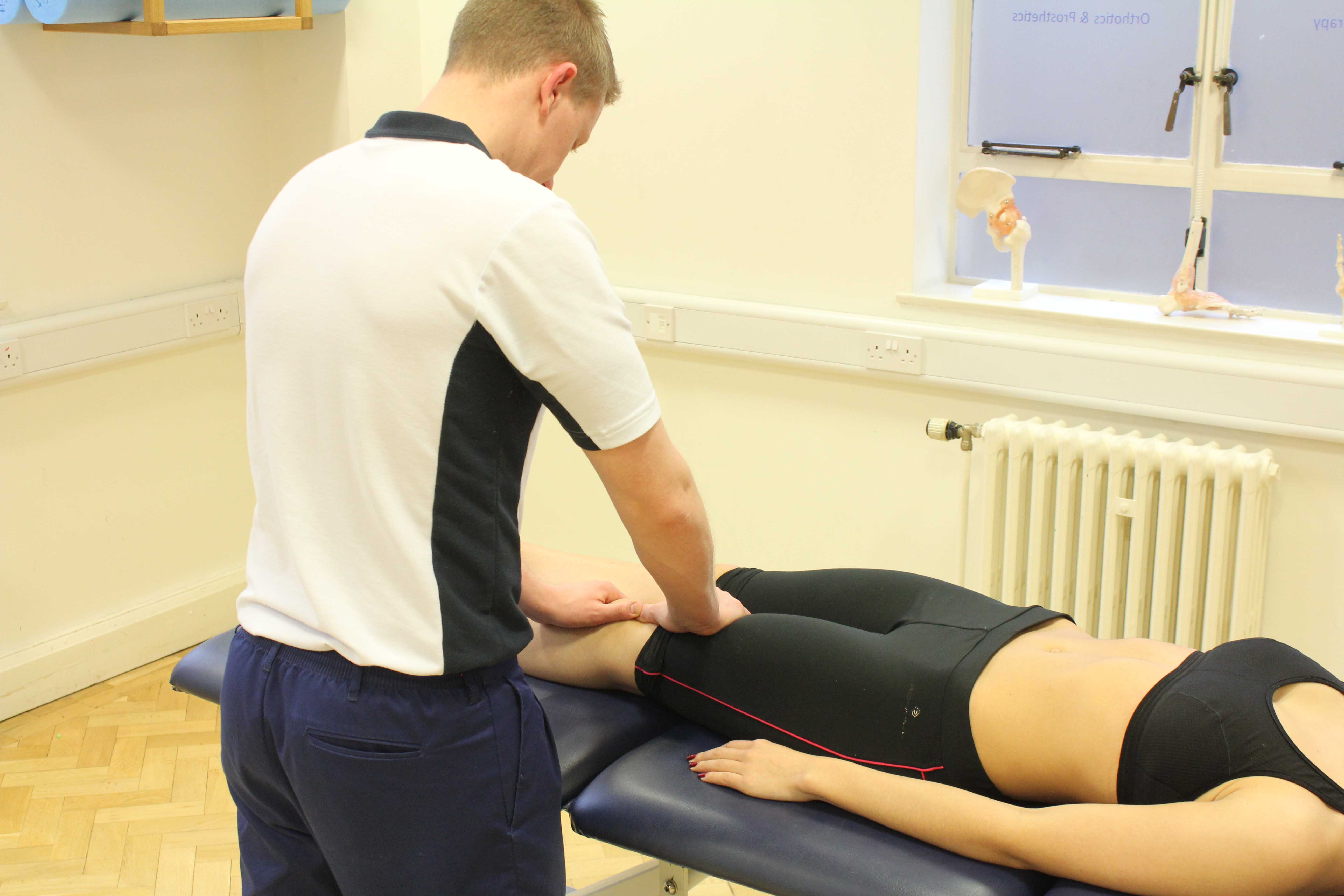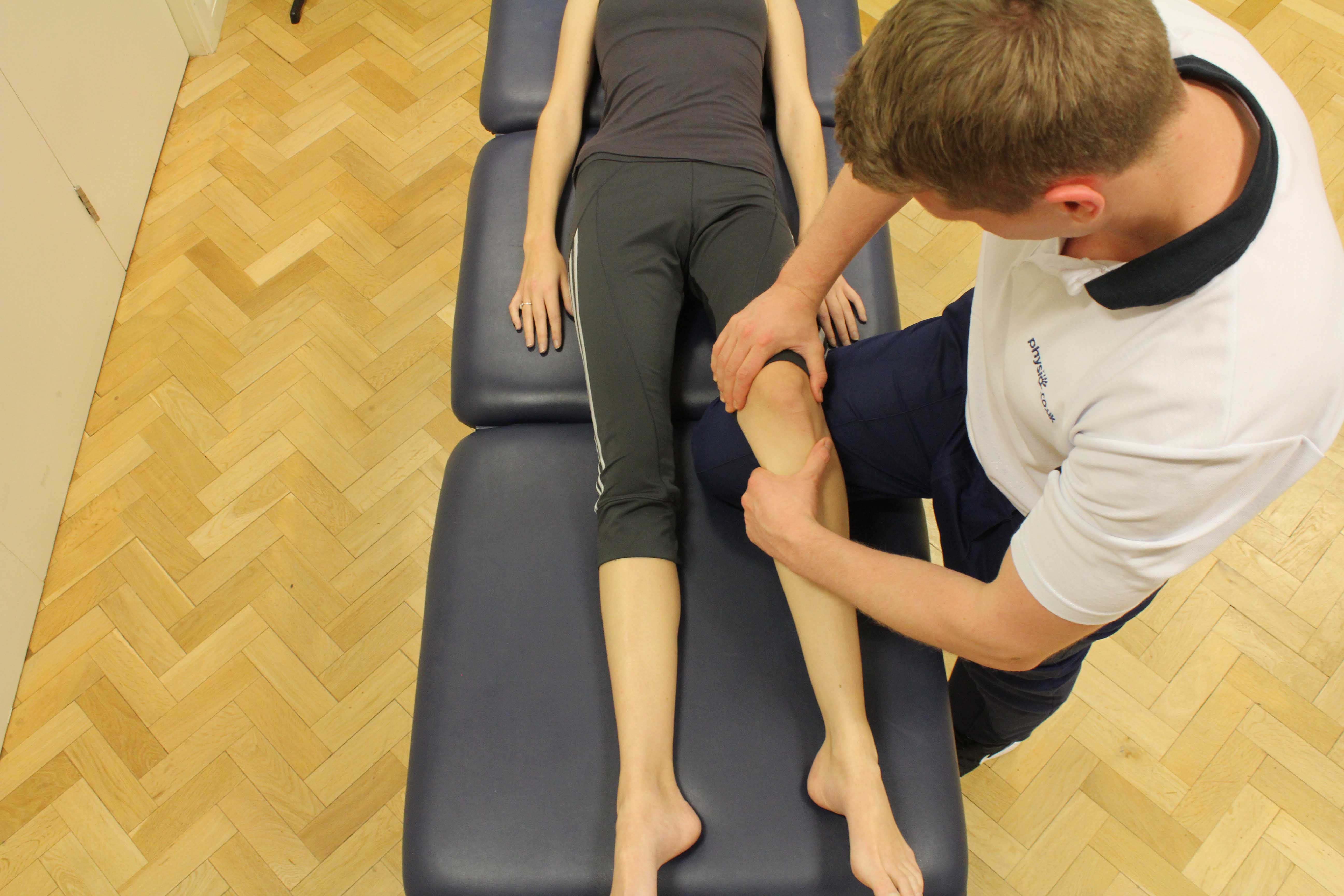What is osteoarthritis of the knee?
Osteoarthritis of the knee is a degenerative condition which causes damage to the cartilage that lines the knee joint. Extra bone is often formed in later stages of osteoarthritis as the body tries to repair what has already been damaged. Although this is the body’s way of trying to encourage the healing process, this surplus bone can cause further damage and pain. Physiotherapy can effectively treat the symptoms of osteoarthritis of the knee.
How does osteoarthritis of the knee happen?
Osteoarthritis of the knee can be due to a number of reasons. It can be caused simply by getting older or may be secondary to a previous injury or operation. There may also be a genetic link to osteoarthritis of the knee. Being overweight and having other conditions such as rheumatoid arthritis could also be risk factors for osteoarthritis.
 Above: Therapist performing mobilisations on the patella, knee joint and surrounding connective tissue.
Above: Therapist performing mobilisations on the patella, knee joint and surrounding connective tissue.What are the symptoms of osteoarthritis of the knee?
Stiffness of the knee joint and pain are the main symptoms of osteoarthritis of the knee. You may also experience weakness in the surrounding muscle groups which could restrict your movement. It can be difficult to go up and down stairs and clicking and grating sounds can be associated with the condition. Additional symptoms include:
What should I do if I have osteoarthritis of the knee?
You should visit your GP if you think you have symptoms of osteoarthritis of the knee. They may refer you for an X-ray in more serious cases. Physiotherapy should be started as soon as possible to help minimise the effect that the condition has on your lifestyle.
What shouldn’t I do if I have osteoarthritis of the knee?
It may not be advisable to continue with high impact sports or activities as this will place too much stress on the knee joints and could cause further damage. Your physiotherapist will be able to recommend other activities that will benefit your condition.
 Above: Therapist performing knee assessment
Above: Therapist performing knee assessmentPhysiotherapy treatment following osteoarthritis of the knee.
Physiotherapy is an excellent way to prevent further damage of arthritic knee joints. A tailored home exercise programme can maintain the strength and flexibility in the muscle groups supporting your knee joint. Other treatment can include:
Could there be any long-term effects from osteoarthritis of the knee?
Osteoarthritis is a degenerative condition and unfortunately it cannot be reversed. However, physiotherapy is able to maintain your active lifestyle and help prevent any further decline in your condition.
To arrange a physiotherapy assessment call Physio.co.uk on 0330 088 7800 or book online.

 0330 088 7800
0330 088 7800


































